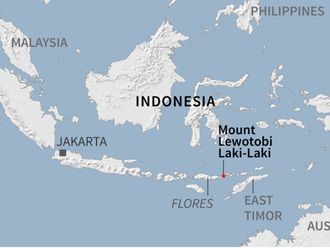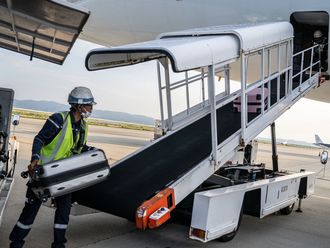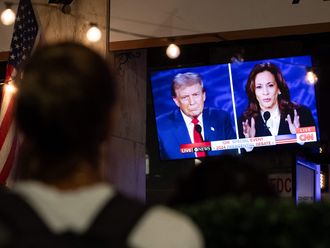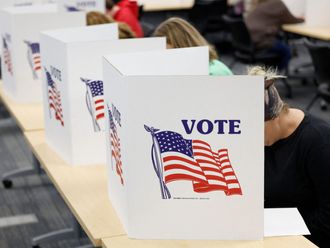Dhaka: Prime Minister Shaikh Hasina on Saturday warned tough action would be taken against "anarchists" as thousands of workers from Bangladesh's highest export-earning garment sector took to the streets for the second consecutive day.
The workers were protesting a rise in the minimum wage to Taka 3,000 (Dh165), up from Taka 1,600 - an 80 per cent hike.
The protesters were demanding the minimum wage to be fixed at Taka 5,000.
But the Premier's comments Saturday came as the suburban Savar and Narayanganj districts witnessed clashes between the workers and riot police - leaving dozens of workers and police injured.
The premier’s deputy press secretary Mahbubul Haque Shakil said Shaikh Hasina had said: “No anarchy and sabotage in this sector will be tolerated".
Shaikh Hasina said the street protests were “designed to destroy the sector”.
The premier had asked workers to concentrate on their work after accepting the new minimum wage, saying “their reasonable demands will be addressed after the effects of the world economic depression are over and exports increase”.
Shaikh Hasina had criticised the garment industry for paying low wages to some two million workers at 4,000 factories in major cities and city outskirts.
Manufacturers had staunchly resisted any significant wage increase.
Garments made in Bangladesh are mostly exported to the United States and Europe earning the country more than $12 billion a year - nearly 80 per cent of the country's exports. The following companies are bulk importers from Bangladesh: Wal-Mart, Tesco, H&M, Zara, Carrefour, Gap, Metro, JCPenney, Marks & Spencer, Kohl's, Levi Strauss and Tommy Hilfiger.
Witnesses to the clashes said workers vandalised several roadside business and had put up barricades to disrupt traffic on two major highways for hours.
They said more than 100 garment workers and 20 policemen were injured when violence erupted in the Savar area, 30km north of Dhaka, when the baton-wielding policemen in riot gear tried to remove the highway blockades.
Police said the "agitators" had also vandalised 50 vehicles including 10 police cars in Savar area.
Highways were also blockaded in Narayanganj, 15km south of Dhaka. However police said the 10,000 protesters there staged a relatively peaceful protest.
Bangladesh Garments Manufacturers and Exporters Association, which represents the country’s more than 4,000 garment factory owners, yesterday called the protests “surprising” and demanded that the government deal with the situation with an “iron hand”.
Association president Abdus Salam Murshedy said: “It is quite surprising that the workers vandalised the factories and other offices even after the announcement of wage hike".
Several workers' unions spurned the new pay structure but others welcomed the hike asking workers to be patient.
Several government leaders, including Labour and Employment Minister Khandkar Mosharraf Hossain, said they feared there was a vested interest behind the protests.
Hossain released the news of the new minimum wage on Thursday saying “we have tried our best to reach an amicable settlement”.
The raise, the first for four years, would be enforced from November, he said.
The manufacturers "could not be persuaded" to agree to a higher raise as the industry was faced manifold problems including an irregular power supply and infrastructure limitations.
In recent months, thousands of garment workers demanding higher wages staged violent street protests, attacked factories and blockaded highways in and outside the capital Dhaka.












